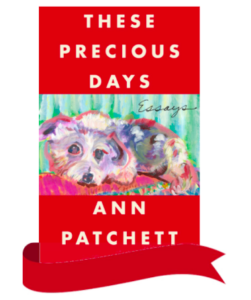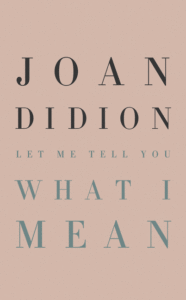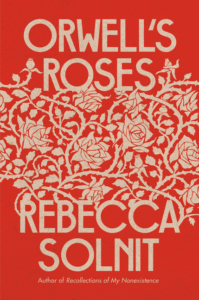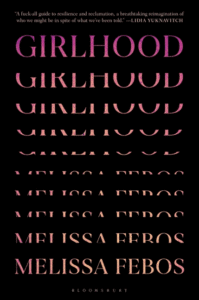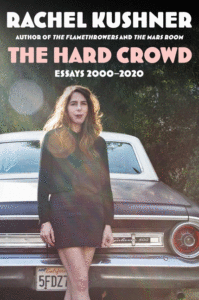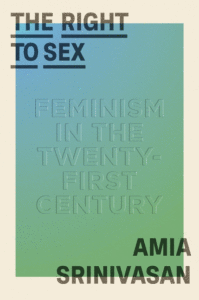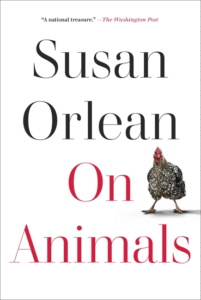
The Best Reviewed Essay Collections of 2021
Featuring Joan Didion, Rachel Kushner, Hanif Abdurraqib, Ann Patchett, Jenny Diski, and more
Well, friends, another grim and grueling plague year is drawing to a close, and that can mean only one thing: it’s time to put on our Book Marks stats hats and tabulate the best reviewed books of the past twelve months.
Yes, using reviews drawn from more than 150 publications, over the next two weeks we’ll be revealing the most critically-acclaimed books of 2021, in the categories of (deep breath): Memoir and Biography; Sci-Fi, Fantasy, and Horror; Short Story Collections; Essay Collections; Poetry; Mystery and Crime; Graphic Literature; Literature in Translation; General Fiction; and General Nonfiction.
Today’s installment: Essay Collections.
Brought to you by Book Marks, Lit Hub’s “Rotten Tomatoes for books.”
*
1. These Precious Days by Ann Patchett
(Harper)
21 Rave • 3 Positive • 1 Mixed
Read Ann Patchett on creating the work space you need, here
“… excellent … Patchett has a talent for friendship and celebrates many of those friends here. She writes with pure love for her mother, and with humor and some good-natured exasperation at Karl, who is such a great character he warrants a book of his own. Patchett’s account of his feigned offer to buy a woman’s newly adopted baby when she expresses unwarranted doubts is priceless … The days that Patchett refers to are precious indeed, but her writing is anything but. She describes deftly, with a line or a look, and I considered the absence of paragraphs freighted with adjectives to be a mercy. I don’t care about the hue of the sky or the shade of the couch. That’s not writing; it’s decorating. Or hiding. Patchett’s heart, smarts and 40 years of craft create an economy that delivers her perfectly understated stories emotionally whole. Her writing style is most gloriously her own.”
–Alex Witchel (The New York Times Book Review)
2. Let Me Tell You What I Mean by Joan Didion
(Knopf)
14 Rave • 12 Positive • 6 Mixed
Read an excerpt from Let Me Tell You What I Mean here
“In five decades’ worth of essays, reportage and criticism, Didion has documented the charade implicit in how things are, in a first-person, observational style that is not sacrosanct but common-sensical. Seeing as a way of extrapolating hypocrisy, disingenuousness and doubt, she’ll notice the hydrangeas are plastic and mention it once, in passing, sorting the scene. Her gaze, like a sentry on the page, permanently trained on what is being disguised … The essays in Let Me Tell You What I Mean are at once funny and touching, roving and no-nonsense. They are about humiliation and about notions of rightness … Didion’s pen is like a periscope onto the creative mind—and, as this collection demonstrates, it always has been. These essays offer a direct line to what’s in the offing.”
–Durga Chew-Bose (The New York Times Book Review)
3. Orwell’s Roses by Rebecca Solnit
(Viking)
12 Rave • 13 Positive • 1 Mixed
Read an excerpt from Orwell’s Roses here
“… on its simplest level, a tribute by one fine essayist of the political left to another of an earlier generation. But as with any of Solnit’s books, such a description would be reductive: the great pleasure of reading her is spending time with her mind, its digressions and juxtapositions, its unexpected connections. Only a few contemporary writers have the ability to start almost anywhere and lead the reader on paths that, while apparently meandering, compel unfailingly and feel, by the end, cosmically connected … Somehow, Solnit’s references to Ross Gay, Michael Pollan, Ursula K. Le Guin, and Peter Coyote (to name but a few) feel perfectly at home in the narrative; just as later chapters about an eighteenth-century portrait by Sir Joshua Reynolds and a visit to the heart of the Colombian rose-growing industry seem inevitable and indispensable … The book provides a captivating account of Orwell as gardener, lover, parent, and endlessly curious thinker … And, movingly, she takes the time to find the traces of Orwell the gardener and lover of beauty in his political novels, and in his insistence on the value and pleasure of things.”
–Claire Messud (Harper’s)
4. Girlhood by Melissa Febos
(Bloomsbury)
16 Rave • 5 Positive • 1 Mixed
Read an excerpt from Girlhood here
“Every once in a while, a book comes along that feels so definitive, so necessary, that not only do you want to tell everyone to read it now, but you also find yourself wanting to go back in time and tell your younger self that you will one day get to read something that will make your life make sense. Melissa Febos’s fierce nonfiction collection, Girlhood, might just be that book. Febos is one of our most passionate and profound essayists … Girlhood…offers us exquisite, ferocious language for embracing self-pleasure and self-love. It’s a book that women will wish they had when they were younger, and that they’ll rejoice in having now … Febos is a balletic memoirist whose capacious gaze can take in so many seemingly disparate things and unfurl them in a graceful, cohesive way … Intellectual and erotic, engaging and empowering[.]”
–Michelle Hart (Oprah Daily)
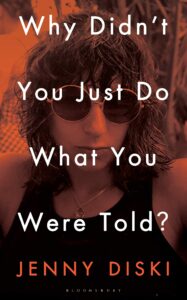
5. Why Didn’t You Just Do What You Were Told by Jenny Diski
(Bloomsbury)
14 Rave • 7 Positive
“[Diski’s] reputation as an original, witty and cant-free thinker on the way we live now should be given a significant boost. Her prose is elegant and amused, as if to counter her native melancholia and includes frequent dips into memorable images … Like the ideal artist Henry James conjured up, on whom nothing is lost, Diski notices everything that comes her way … She is discerning about serious topics (madness and death) as well as less fraught material, such as fashion … in truth Diski’s first-person voice is like no other, selectively intimate but not overbearingly egotistic, like, say, Norman Mailer’s. It bears some resemblance to Joan Didion’s, if Didion were less skittish and insistently stylish and generated more warmth. What they have in common is their innate skepticism and the way they ask questions that wouldn’t occur to anyone else … Suffice it to say that our culture, enmeshed as it is in carefully arranged snapshots of real life, needs Jenny Diski, who, by her own admission, ‘never owned a camera, never taken one on holiday.’” It is all but impossible not to warm up to a writer who observes herself so keenly … I, in turn, wish there were more people around who thought like Diski. The world would be a more generous, less shallow and infinitely more intriguing place.”
–Daphne Merkin (The New York Times Book Review)
6. The Hard Crowd: Essays 2000-2020 by Rachel Kushner
(Scribner)
12 Rave • 7 Positive
Listen to an interview with Rachel Kushner here
“Whether she’s writing about Jeff Koons, prison abolition or a Palestinian refugee camp in Jerusalem, [Kushner’s] interested in appearances, and in the deeper currents a surface detail might betray … Her writing is magnetised by outlaw sensibility, hard lives lived at a slant, art made in conditions of ferment and unrest, though she rarely serves a platter that isn’t style-mag ready … She makes a pretty convincing case for a political dimension to Jeff Koons’s vacuities and mirrored surfaces, engages repeatedly with the Italian avant garde and writes best of all about an artist friend whose death undoes a spell of nihilism … It’s not just that Kushner is looking back on the distant city of youth; more that she’s the sole survivor of a wild crowd done down by prison, drugs, untimely death … What she remembers is a whole world, but does the act of immortalising it in language also drain it of its power,’neon, in pink, red, and warm white, bleeding into the fog’? She’s mining a rich seam of specificity, her writing charged by the dangers she ran up against. And then there’s the frank pleasure of her sentences, often shorn of definite articles or odd words, so they rev and bucket along … That New Journalism style, live hard and keep your eyes open, has long since given way to the millennial cult of the personal essay, with its performance of pain, its earnest display of wounds received and lessons learned. But Kushner brings it all flooding back. Even if I’m skeptical of its dazzle, I’m glad to taste something this sharp, this smart.”
–Olivia Laing (The Guardian)
7. The Right to Sex: Feminism in the Twenty-First Century by Amia Srinivasan
(FSG)
12 Rave • 7 Positive • 5 Mixed • 1 Pan
“[A] quietly dazzling new essay collection … This is, needless to say, fraught terrain, and Srinivasan treads it with determination and skill … These essays are works of both criticism and imagination. Srinivasan refuses to resort to straw men; she will lay out even the most specious argument clearly and carefully, demonstrating its emotional power, even if her ultimate intention is to dismantle it … This, then, is a book that explicitly addresses intersectionality, even if Srinivasan is dissatisfied with the common—and reductive—understanding of the term … Srinivasan has written a compassionate book. She has also written a challenging one … Srinivasan proposes the kind of education enacted in this brilliant, rigorous book. She coaxes our imaginations out of the well-worn grooves of the existing order.”
–Jennifer Szalai (The New York Times)
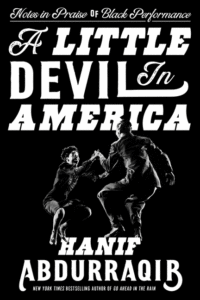
8. A Little Devil in America by Hanif Abdurraqib
(Random House)
13 Rave • 4 Positive
Listen to an interview with Hanif Abdurraqib here
“[A] wide, deep, and discerning inquest into the Beauty of Blackness as enacted on stages and screens, in unanimity and discord, on public airwaves and in intimate spaces … has brought to pop criticism and cultural history not just a poet’s lyricism and imagery but also a scholar’s rigor, a novelist’s sense of character and place, and a punk-rocker’s impulse to dislodge conventional wisdom from its moorings until something shakes loose and is exposed to audiences too lethargic to think or even react differently … Abdurraqib cherishes this power to enlarge oneself within or beyond real or imagined restrictions … Abdurraqib reminds readers of the massive viewing audience’s shock and awe over seeing one of the world’s biggest pop icons appearing midfield at this least radical of American rituals … Something about the seemingly insatiable hunger Abdurraqib shows for cultural transaction, paradoxical mischief, and Beauty in Blackness tells me he’ll get to such matters soon enough.”
–Gene Seymour (Bookforum)
9. On Animals by Susan Orlean
(Avid Reader Press)
11 Rave • 6 Positive • 1 Mixed
Listen to an interview with Susan Orlean here
“I very much enjoyed Orlean’s perspective in these original, perceptive, and clever essays showcasing the sometimes strange, sometimes sick, sometimes tender relationships between people and animals … whether Orlean is writing about one couple’s quest to find their lost dog, the lives of working donkeys of the Fez medina in Morocco, or a man who rescues lions (and happily allows even full grown males to gently chew his head), her pages are crammed with quirky characters, telling details, and flabbergasting facts … Readers will find these pages full of astonishments … Orlean excels as a reporter…Such thorough reporting made me long for updates on some of these stories … But even this criticism only testifies to the delight of each of the urbane and vivid stories in this collection. Even though Orlean claims the animals she writes about remain enigmas, she makes us care about their fates. Readers will continue to think about these dogs and donkeys, tigers and lions, chickens and pigeons long after we close the book’s covers. I hope most of them are still well.”
–Sy Montgomery (The Boston Globe)
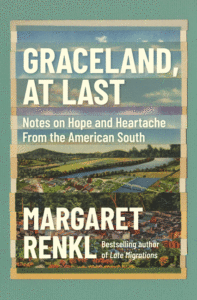
10. Graceland, at Last: Notes on Hope and Heartache from the American South by Margaret Renkl
(Milkweed Editions)
9 Rave • 5 Positive
Read Margaret Renkl on finding ideas everywhere, here
“Renkl’s sense of joyful belonging to the South, a region too often dismissed on both coasts in crude stereotypes and bad jokes, co-exists with her intense desire for Southerners who face prejudice or poverty finally to be embraced and supported … Renkl at her most tender and most fierce … Renkl’s gift, just as it was in her first book Late Migrations, is to make fascinating for others what is closest to her heart … Any initial sense of emotional whiplash faded as as I proceeded across the six sections and realized that the book is largely organized around one concept, that of fair and loving treatment for all—regardless of race, class, sex, gender or species … What rises in me after reading her essays is Lewis’ famous urging to get in good trouble to make the world fairer and better. Many people in the South are doing just that—and through her beautiful writing, Renkl is among them.”
–Barbara J. King (NPR)
*
Our System:
RAVE = 5 points • POSITIVE = 3 points • MIXED = 1 point • PAN = -5 points
Book Marks
Visit Book Marks, Lit Hub's home for book reviews, at https://bookmarks.reviews/ or on social media at @bookmarksreads.










